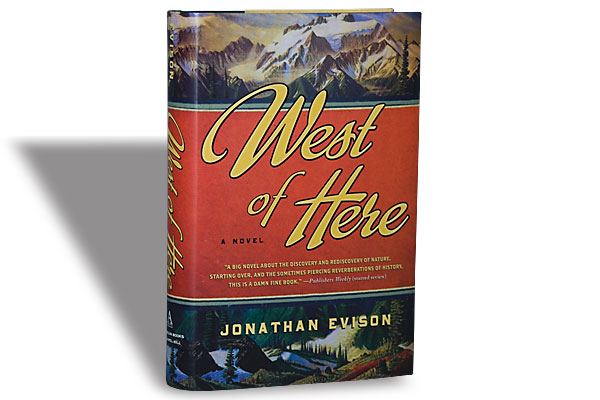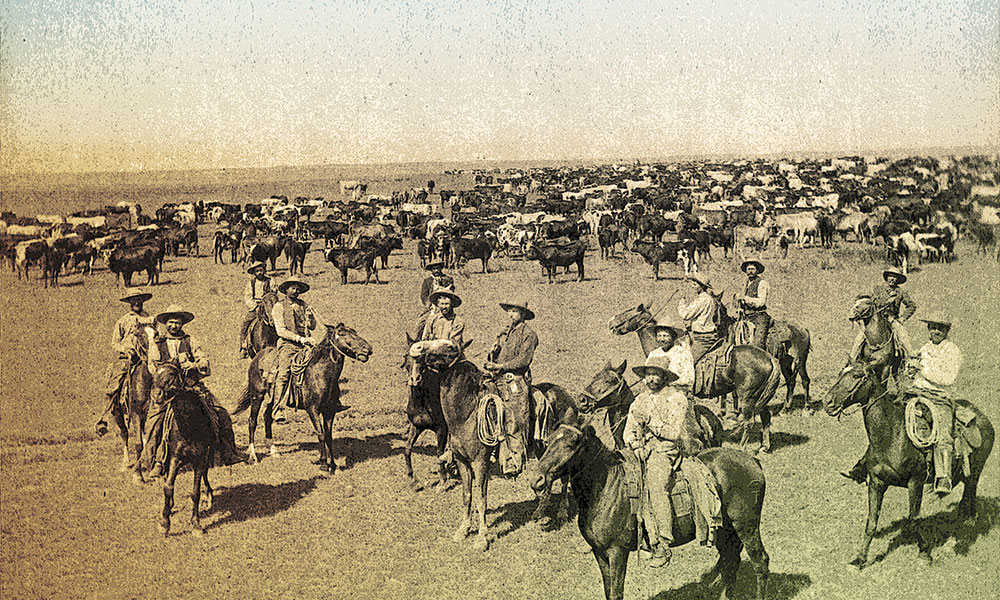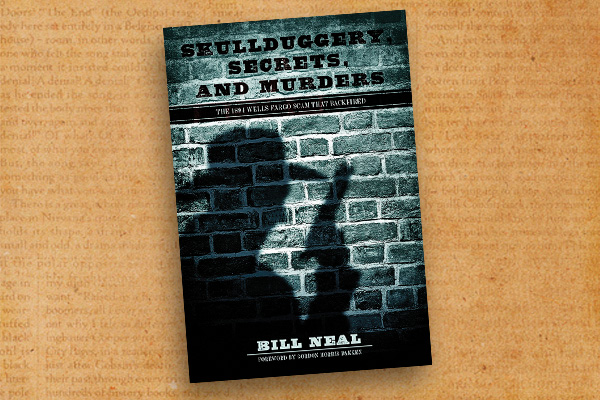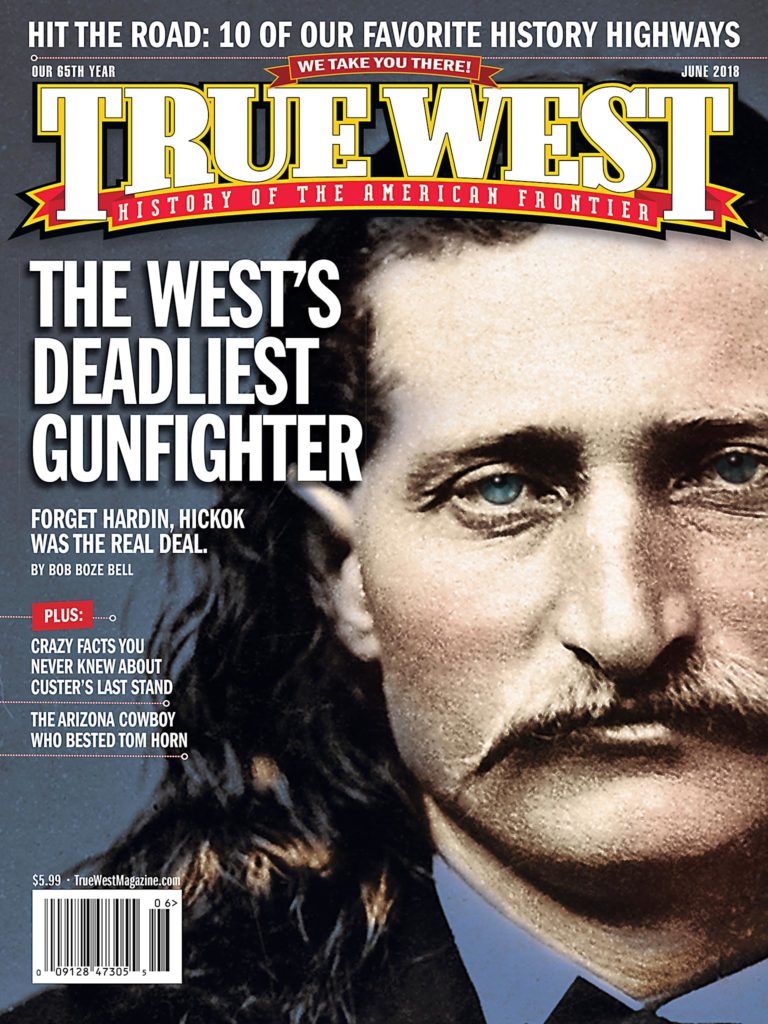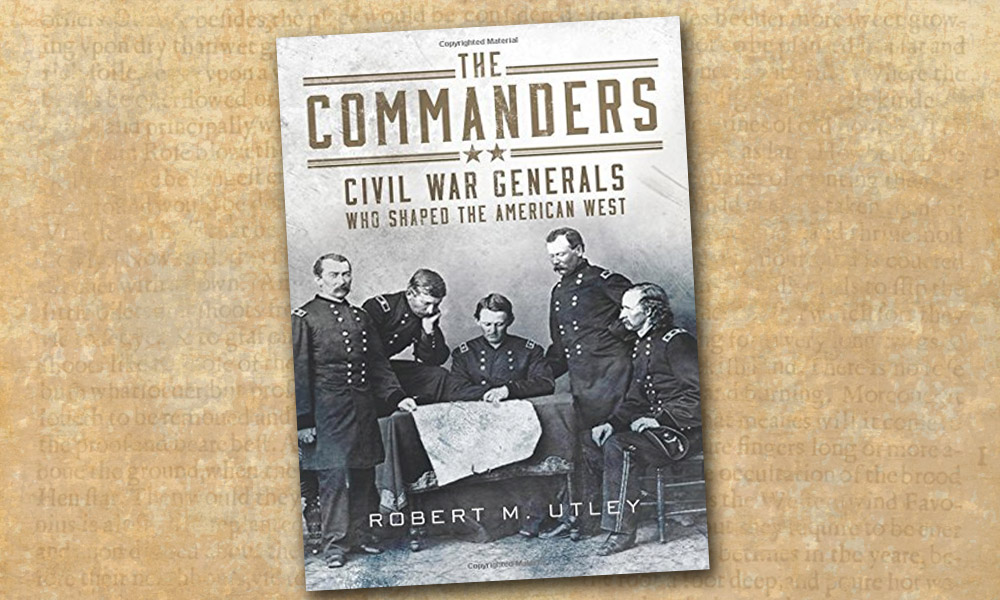
For 55 years, Robert M. Utley has been informing, entertaining and enlightening readers with his well-researched biographies and histories of the 19th-century American West.
His focus has been warfare and conflict on the Western frontier, including his first two groundbreaking works, The Last Days of the Sioux Nation (Yale University Press, 1963) and Frontiersmen in Blue: The United States Army and the Indian, 1848-1865 (Macmillan, 1967). More than a half-century later, Utley’s The Commanders: Civil War Generals Who Shaped the American West (University of Oklahoma Press, $29.95) is the award-winning author’s latest contribution to our collective understanding of the military’s influential role in the settlement of the Western United States—and the parallel fate of the Western tribes.
The renowned historian credits Thomas E. Ricks’ The Generals: American Military Command from World War II to Today (Penguin, 2012) as an inspiration for his examination of seven Civil War generals who served as one-star brigadier generals in the West. “Those chosen for my examination served at the department level, the crucial unit between the division commander and the troops in the field,” Utley explains in his Preface. “Each approached his duties in a different way. Some took the field and led combat commands. Others preferred to command from department headquarters, overseeing more active officers who were leading the field operations.”
Reminiscent of one of my favorite three-volume history series, Douglas Southall Freeman’s brilliant Lee’s Lieutenants: A Study in Command (Scribner, 1944), Utley’s tightly written and edited volume systematically profiles the lives and careers of seven Union combat generals who were posted out West as department commanders from 1863 to 1889: Christopher C. Augur, George Crook, Oliver O. Howard, Nelson A. Miles, Edward O.C. Ord, John Pope and Alfred H. Terry. Applying a compare-and-contrast methodology, using similar quantitative and qualitative factors, such as place-of-birth, education, military careers before, during and after the Civil War, Utley provides the reader with concise chapter profiles on each general. His research is impeccable, with an excellent bibliography and end notes.
Utley’s conclusions, including his final chapter “Evaluating the Commanders” (in which he ranks the seven leaders, a spoiler I will not reveal), provides context to his evaluations of the Western department-level leaders and their influence, good and bad, on the history of the American West. Readers who appreciate Utley’s style and methodology will also recognize that he has provided a summation to his military history of the Frontier West. The 89-year-old historian has so thoroughly researched and published on the topic that he must be considered in the same pantheon of American Western historians as Hubert Howe Bancroft, Frederick Jackson Turner, Walter Prescott Webb, Ray Allen Billington, Earl S. Pomeroy, Howard R. Lamar and William H. Goetzmann.
—Stuart Rosebrook

